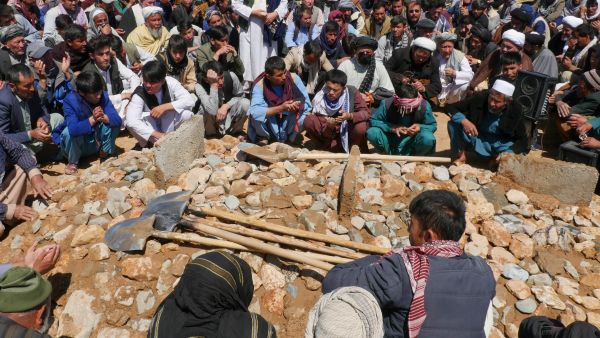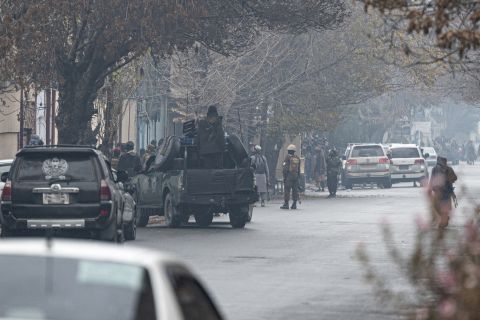ALBAWABA - claimed a gun attack on a minority Shiite mosque in western Afghanistan that killed six people on Monday.
Late Tuesday, the regional ISIS chapter claimed responsibility for the attack, stating that many gunmen attacked the mosque with machine guns, contradicting the government's story of the tragedy being carried out by one person.
According to Interior Ministry spokesman Abdul Mateen Qani, on Monday night "an unknown armed person shot at civilian worshippers in a mosque" in Herat province's Guzara district. "Six civilians were martyred and one civilian was injured," Qani wrote on X early Tuesday morning.
According to locals, the mosque, located just south of the province capital Herat, served the minority Shiite community, and those killed included an imam and a three-year-old boy.
60-year-old Ibrahim Akhlaqi, the brother of the slain imam told AFP "One of them was outside and two of them came inside the mosque, shooting the worshippers,". "It was in the middle of prayers" Akhlaqi added.
Since retaking power in August 2021, the Taliban leadership has claimed to protect religious and ethnic minorities, but rights monitors believe they have done little to keep that promise.
The most prominent ISIS incident since the Taliban takeover occurred in 2022, when at least 53 people, including 46 children and young women, were killed in a suicide bombing of an education center.
According to a United Nations Security Council report released in January, ISIS attacks in Afghanistan have decreased as a result of "counter-terrorism efforts by the Taliban".
However, the study stated that ISIS still had "substantial" recruitment in the country and that the militant group has "the ability to project a threat into the region and beyond".








